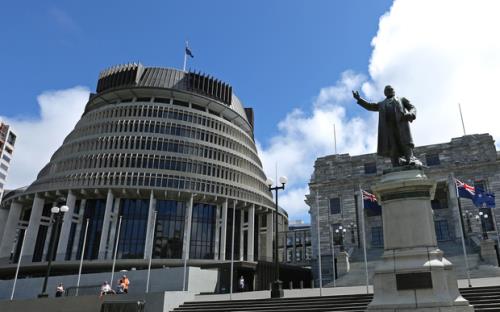 Public servants have been waiting some time to see some movement in the so-called “pay restraint” imposed on Government agencies following the Covid-19 epidemic. It has been anticipated that the Public Services Commission will shortly issue new guidelines for pay increases in the public service.
Public servants have been waiting some time to see some movement in the so-called “pay restraint” imposed on Government agencies following the Covid-19 epidemic. It has been anticipated that the Public Services Commission will shortly issue new guidelines for pay increases in the public service.
While efforts are made to ensure that government workers are fairly compensated their pay often lags behind that of their private sector counterparts. This disparity has become more pronounced since the Government applied a “pay freeze” in 2020, citing the threat of rising Covid-19. The Government softened its 2020 approach slightly in 2021 when the Public Services Commission directed government agencies to ensure that pay increases did not occur unless they met very strict criteria.
Agencies were permitted to provide modest pay increases for staff earning less than $60,000. Agencies could provide for small increases in pay for lower to middle earners by a modest progression within their salary band; or where there was a demonstrable recruitment demand that was not being met. There were to be no increases to salary bands or pay increases for those paid over $100,000. In exceptional circumstances agencies could obtain approval from the Commission.
While the Commission’s current guidelines remain in place, it is widely accepted that New Zealand is going through a “cost of living crisis”. Annual inflation is tracking at 7.2 percent. Stats NZ has reported that increasing prices continued to affect all household groups in the 12 months to December 2022. The cost of living for the average household (as measured by the household living-costs price indexes) increased by 8.2 percent in the 12 months to December 2022.
The basic costs of living have cut significantly into workers’ pay packets. “Higher prices for housing, food, and transport were the main contributors to the increase across all household groups,” NZ Stats consumer prices manager James Mitchell said.
Meanwhile the Ministry of Business, Innovation and Employment has recently provided an updated benchmark of rates that the Governments pays to contractors. It compares 2021 to the 2022 financial year using the average rate for the top 10 commonly reported job categories. It shows that there have been steep rate rises for some contactors of up to 46%, but also drops of up to 15%.
Overall, contractors were getting 8.5% more in 2022, just ahead of inflation and well ahead of most private and public sector wage rises.
IT contractors, as usual, dominate the high rates at up to about $250 an hour and averages about $150. But it is much lower paid public-facing roles, such as helpdesk, contact centre, and customer service contracts, that went up the greatest percentage in the year to July 2022. These average around $50-$60 an hour.
"We have high inflation and a tight labour market, including a skills shortage and low unemployment," said MBIE delivery services director Matt Perkins.
Of course the National Party has been castigating the Government about its spending on contractors. But both the leaders of the Labour Party and National Party have recently talked about increasing in-house core public sector capability to lessen reliance on contractors, though National has at the same time said it wants to cut the 60,000-strong core workforce of the public service.
It has been reported that the Commission’s new guidelines will give weight to a new pay approach called the Public Sector Pay Adjustment (PSPA) that has been used to recently settle some collective bargaining in the public sector. It is understood that the PSPA had been used to settle more than a dozen collective agreements so far, offering a $4000 pay rise in the first year and three percent, or $2000, in the second. But some powerful unions, such as those representing teachers, nurses and senior doctors, have rejected it as putting their workers’ pay behind inflation.
In the Public Service, about a fifth of collective agreements are settled or in a ratification process, while just under a third are in bargaining now or expected to start bargaining soon.
The Commission has declined to comment on what may be in its new guidelines "Because it could impact current bargaining".
What is clear is that the financial pressure on many government employees and their families is going to continue for some time. With high inflation, with higher mortgage costs and rent payments continuing, the cost of living is unlikely to reduce soon. Hopefully the Commission’s new guidelines will provide a well-deserved catchup to ensure we have a public service that retains and attracts talented people that can service us well. Read more
David Burton is an employment law barrister at www.burtonlaw.co.nz

